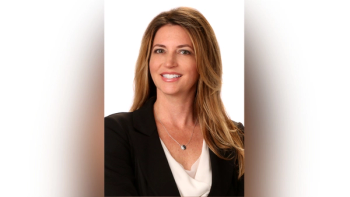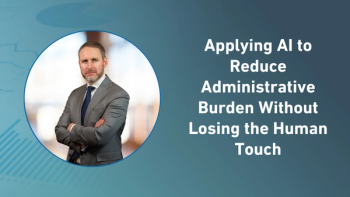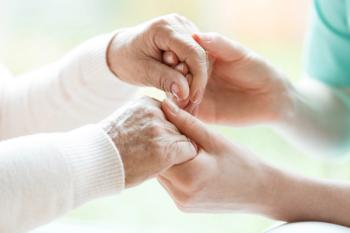
- Applied Clinical Trials-06-01-2023
- Volume 32
- Issue 6
Perspective and Hope From the ‘Other Side’
Jim Kremidas, former executive director, Association of Clinical Research Professionals, shares his experiences as a patient in clinical trials.
I thought I knew a lot about clinical trials. I understood the structure, much of the science, and the business models. But when I became a patient, I learned how much I didn’t understand about being on “the other side” of a trial.
I sincerely wish to applaud clinical trial practitioners and this amazingly innovative industry. Each day, you do vital work designed to mitigate human suffering and prolong high quality of life. Truly, yours is a higher calling I’ve experienced firsthand.
I’d like to share some of my experiences as a patient in the hope practitioners, sponsors, and others can learn more about the patient perspective and make some critical adjustments I believe would increase clinical trial recruitment and retention.
I never expected to experience the clinical trial industry as a patient. But in late 2020 I was diagnosed with cancer. As you might imagine, the diagnosis was chilling for me and my family.
I’d spent my professional career in the healthcare and clinical development industry. First, as an analytical chemist with the Upjohn Company, then with Eli Lilly. Next, I worked with a few CROs leading their patient-centric initiatives.
I capped my full-time professional career as the executive director of the Association of Clinical Trial Professionals, the trade group representing people who execute protocols at the investigator site level.
After my cancer was discovered, my team of medical professionals put me through the standard regime of care for over a year. Unfortunately, it didn’t remove or stop the cancer.
I realized I needed to think about my treatment in new ways. And the most important and effective approach turned out to be getting involved in a clinical trial. However, even with my own knowledge base and network of friends and colleagues, it was very challenging to find a clinical trial. I can only imagine the difficulties faced by someone outside our industry.
I was fortunate to speak with people I knew in the industry, including my old friends Randy Hall and Craig Lipset, who helped connect me to a trial. However, when I look back at how lucky I was, and the haphazardness of my search, it frankly scares me to imagine how different my life might have been if I’d not found this trial thanks to the support of others.
We must do a better job explaining and promoting clinical trials to the general public. It’s a good start, but we cannot rely on ClinicalTrials.gov to do the job for us. It’s cumbersome, with too much jargon for the layperson, and not always easy to navigate online.
We need to ensure that the overall healthcare community considers clinical trials as a healthcare option and assists patients in finding them.
Once we identified the right clinical trial for me, a whole new journey began. And it was also sometimes challenging. For example, I benefited greatly from the services of a patient concierge who helped me understand some basic logistics, such as which building to go to when and at what time. It sounds simple, but for someone already worried about their health, the last thing they need when participating in a clinical trial is to drown in detail without help from someone who understands the most granular aspects of the process.
I also call on physicians and other practitioners to take the time to more fully explain how the trial will work. Spell out, in basic terms, the trial goals and machinations. I know people are busy, but helping patients better grasp their clinical trial will go a long way toward assuaging worry and improving retention.
We also need to think about patient compensation.I was fortunate in that the costs of travel, parking, and other issues weren’t too much of a burden. Plus, I was semi-retired at the time, so my schedule was relatively flexible. Unfortunately for many, such is not always the case. As an industry we need to find more effective ways to offset costs that are prohibitive for many. I’d even suggest we find ways to reimburse patients who miss work because of trial participation.
My clinical trial has been integral to fighting my cancer. Today, I’m cancer free. Of course, follow up will be critical in the long run to make certain it stays that way but I’m far ahead of where I’d be without the benefits of the trial.
You have my deepest thanks and appreciation. I hope sharing my positive experience will further inspire you to even greater heights.
Articles in this issue
over 2 years ago
Changing Behavior: Knowing Doesn’t Equal Doingover 2 years ago
Obtaining Informed Consent for Future Reuse of Patient Dataover 2 years ago
Optimizing the Process for Adopting DCT Solutionsover 2 years ago
Patient Data Return: Do the Benefits Outweigh the Barriers?over 2 years ago
Patient Experience Data: Get Your Copy at DIAover 2 years ago
From 'Brave Spaces' to Battling Bias in Patient Engagementover 2 years ago
Industry Trends: Cycle Time to Resolve Risk Signalsover 2 years ago
A Business Case to Bridge Trials and Careover 2 years ago
ASCO, Clinical Trials for LifeNewsletter
Stay current in clinical research with Applied Clinical Trials, providing expert insights, regulatory updates, and practical strategies for successful clinical trial design and execution.




